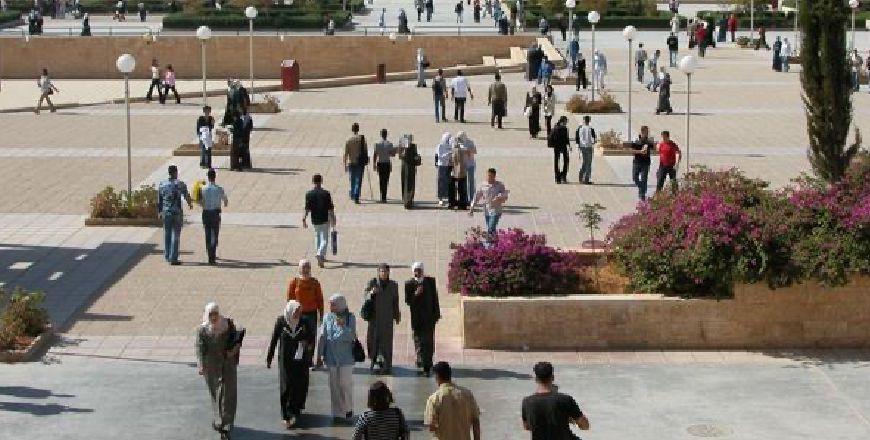You are here
World Bank approves $112 million to finance Jordan’s National Employment Programme
By JT - Dec 22,2021 - Last updated at Dec 22,2021

Overall youth unemployment in Jordan jumped from 40.6 per cent in 2019 to an unprecedented 50 per cent in 2020, while female unemployment rose from 24.1 per cent in 2019 to 32.8 per cent in 2020, a much larger increase than for men, according to the World Bank (File photo)
AMMAN — The World Bank has approved $112 million in financing for the Jordan Support to Private Sector Employment and Skills Project, a programme designed to support Jordan’s own efforts to stimulate private sector employment, improve skills training, and reduce youth and female unemployment.
The past 20 months of the COVID-19 pandemic have taken a toll on Jordan’s small, open economy, with its strong links to the rest of the world. Real gross domestic product (GDP) contracted by 1.6 per cent in 2020 and, despite an economic rebound in the first two quarters of 2021, the country’s unemployment rate remains at 24.8 per cent, according to a World Bank statement.
Women and youth, whose unemployment rates were already higher, are being hit hardest by the COVID-19 crisis: Overall youth unemployment jumped from 40.6 per cent in 2019 to an unprecedented 50per cent in 2020, while female unemployment rose from 24.1 per cent in 2019 to 32.8 per cent in 2020, a much larger increase than for men.
At 14 per cent, Jordan’s female labour force participation rate is one of the lowest in the world, the statement said.
In response, the Government of Jordan will be launching the National Employment Programme (NEP), which will be supported by this new World Bank project.
Part of Jordan’s Economic Priority Plan 2021-2023, the programme aims to help the country’s private sector create sustainable jobs at a time when many firms are recovering from the initial impact of the pandemic but are still reluctant to hire new employees. Male unemployment also increased between 2019 and 2020, from 17.7 per cent to 22.6per cent.
"This programme is considered one of the most important pillars of the government's priorities programme for the years 2021-2023, and it is added to the economic stimulus packages approved by the government to support the national economy during the pandemic period,” said Minister of Planning and International Cooperation Nasser Shraideh.
“The NEP was designed in full partnership with private sector representatives, and its implementation mechanism was simplified to enable the private sector to create the largest number of job opportunities, with the least possible government intervention, as the private sector companies will be the most important player in this programme,”he said.
“World Bank financing will help us to launch our National Employment Programme in early 2022 to help us recover from COVID-19 by promoting private sector-led job creation targeting youth and women, who are most in need of job opportunities”, said Labour Minister Nayef Stetieh.
The NEP aims to enable more than 2,000 private sector firms to hire and train over 63,000 new employees, with a third, women, and half, youth aged 18 to 24.
It plans to do this through a combination of government subsidies for wages, social security, and transport, as well as for structured on-the-job and classroom training.
Jordan’s persistently high levels of unemployment are driven by the limited capacity of its private sector to create more— and better — jobs, the statement said.
The private sector generates far fewer jobs than the number of new entrants into the labour force, and the public sector is not able to make up the gap. Unemployment is also explained by the mismatch between the skills that workers bring to the labour market and the skills the private sector demands.
"The World Bank is supporting Jordan in its COVID-19 response efforts, including through this new employment initiative, and help strengthen private sector-led investment growth and job creation for an effective and resilient recovery,” said SarojKumar Jha, Mashreq Regional Director, World Bank Group.
“On-the-job and classroom training under this new programme will contribute to upskilling of Jordanians and achieving sustainable employment,” the regional director added.
The World Bank’s Country Partnership Framework for Jordan 2017-2022 highlights the need for stronger private sector-led growth and better employment opportunities for all.
By providing finance for government strategies to support the creation of more economic opportunities for women, Jordan’s new employment programme is in keeping with the Bank Group’s Gender Strategy 2016-23, as well as Jordan’s Women Economic Empowerment Action Plan and its National Strategy for Women 2020-2025.
Related Articles
AMMAN — The World Bank has disbursed $37.9 million for the National Employment Programme, representing 33.8 per cent of the total funding of
AMMAN — The economies of the Gulf Cooperation Council (GCC) are projected to grow at a slower pace in 2023 compared to the previous yea
The European Union (EU) and Orange Jordan signed a 7.3 million euro agreement to create a new Innovation Space project that would promote pr












